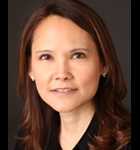
14 Apr Patients’ Trust in Medical Profession Declined After Open Payments
MedicalResearch.com Interview with:

Dr. Genevieve Kanter
Genevieve P. Kanter, PhD
Assistant Professor (Research) of Medicine
Medical Ethics and Health Policy
University of Pennsylvania Perelman School of Medicine
Philadelphia, PA 19104-6021
MedicalResearch.com: What is the background for this study?
Response: Physicians frequently have financial relationships with pharmaceutical and medical device firms, but only recently has information on these financial ties been made available to the public. The Open Payments program, created by the Physician Payment Sunshine Act, has made this industry payments information available through a public website since 2014.
Because transparent institutions are believed to engender greater public trust, public disclosure of industry payments could increase public trust in the medical profession, which may have been weakened by physicians’ relationships with industry. On the other hand, Open Payments may have decreased public trust because of the focus of media reporting on physicians receiving the largest sums of money.
We sought to investigate how Open Payments and the public disclosure of industry payments affected public trust in physicians and in the medical profession. We compared changes in trust among patients who lived in states where payments information had, by state statute, previously been made available, to changes in trust among patients who lived in states where this information became newly available through Open Payments.
MedicalResearch.com: What are the main findings?
Response: We found that patients’ trust in their own physicians declined following the nationwide public disclosure of industry payments. We also found that public disclosure was associated with a decline in patients’ trust in the medical profession.
This decline in trust was not caused by some patients’ knowing that their doctors had received industry payments; we know, from a previous study, that very few patients know whether their own physicians have actually received payments. Instead what seems to be happening is that patients are indirectly hearing about industry payments (say, through media reporting) and this may have led to diminished trust.
Because many doctors do not receive industry payments, an important unintended consequence of Open Payments is that doctors who do not receive industry payments are painted with the same broad brush as those who do.
MedicalResearch.com: What should readers take away from your report?
Response: Although transparency is desirable in its own right, how information about industry payments get disseminated to the public is also very important.
Because of the negative spillover effects onto physicians who do not receive payments, providers who do not receive industry payments should take greater initiative to inform current and prospective patients of their pharma-free status.
Journalists and researchers, in their use of Open Payments data and reporting about industry payments, should take greater care and use more nuance in presenting their findings.
MedicalResearch.com: What recommendations do you have for future research as a result of this work?
Response: Although transparency initiatives are potentially useful, the passive information dissemination that often follows these initiatives can have unintended consequences on patients and providers. More research should be done on how to enhance public disclosure and transparency while minimizing unintended negative effects.
Any disclosures?
This study was supported by the Greenwall Foundation, which funds bioethics research.
Citation:
[wysija_form id=”3″]
[last-modified]
The information on MedicalResearch.com is provided for educational purposes only, and is in no way intended to diagnose, cure, or treat any medical or other condition. Always seek the advice of your physician or other qualified health and ask your doctor any questions you may have regarding a medical condition. In addition to all other limitations and disclaimers in this agreement, service provider and its third party providers disclaim any liability or loss in connection with the content provided on this website.
Last Updated on April 15, 2019 by Marie Benz MD FAAD
